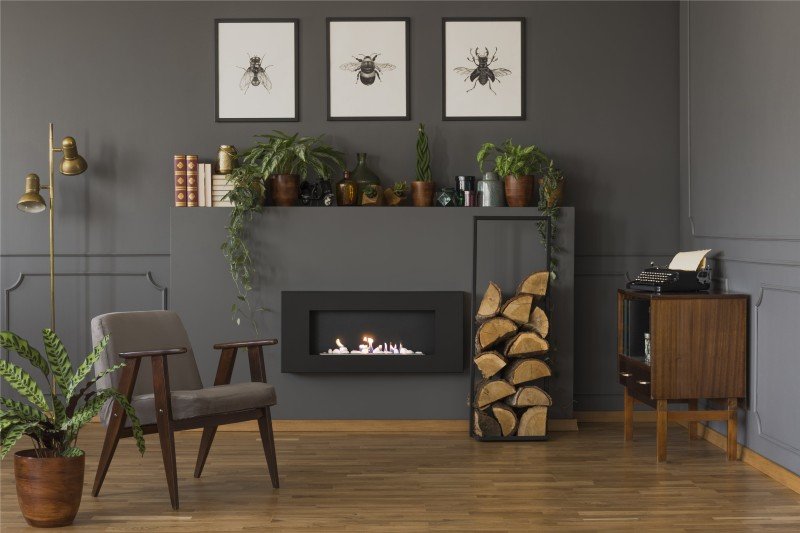The Best Fireplaces: A Comprehensive Guide for Homeowners
Fireplaces have actually long been a cherished feature in homes, offering both warmth and a welcoming environment. They are available in different styles, sizes, and fuel types, enabling property owners to choose one that fits their personal visual and heating requirements. This article explores the best fireplaces, highlighting key features and considerations to help you make an informed choice.
Kinds of Fireplaces
Understanding the various types of fireplaces is vital in picking the best alternative for your home. Below are the most frequently used fireplaces:
Wood-Burning Fireplaces
- Benefits: Traditional appeal, natural ambiance, and effective heating.
- Disadvantages: Requires regular upkeep, ash disposal, and is subject to regional policies regarding emissions.
Gas Fireplaces
- Advantages: Convenient, clean-burning, and simple to operate.
- Drawbacks: Requires a gas line, can be more expensive to install initially.
Electric Fireplaces
- Benefits: Easy setup, low upkeep, and the best option for homes with children or family pets.
- Disadvantages: Lack the genuine feel of wood or gas flames, may not warm large areas successfully.
Pellet Stoves
- Advantages: Eco-friendly, effective, and provide a steady heat output.
- Drawbacks: Requires electrical energy to run, and pellet supply can be restricted in some locations.
Ethanol Fireplaces
- Advantages: No chimney required, portable, and eco-friendly.
- Downsides: Generally less efficient for heating.
A Comparison of Fireplace Types
| Type | Setup Cost | Running Cost | Heat Output | Upkeep | Environmental Impact |
|---|---|---|---|---|---|
| Wood-Burning | ₤ ₤ | ₤ | High | High | Moderate |
| Gas | ₤ ₤ ₤ | ₤ ₤ | Medium-High | Low | Moderate |
| Electric | ₤ | ₤ ₤ | Low | Extremely Low | Low |
| Pellet | ₤ ₤ | ₤ | Medium | Medium | Low |
| Ethanol | ₤ ₤ | ₤ ₤ ₤ | Low | Very Low | Very Low |
Leading Considerations When Choosing a Fireplace
When you're in the marketplace for a new fireplace, keep the following aspects in mind to ensure you select the best one for your home:
- Purpose and Functionality: What do you want your fireplace to do? Is it for heating or visual appeals? This will direct your option significantly.
- Area Availability: Measure the location where you wish to set up the fireplace. Ensure the chosen type fits without overwhelming the area.
- Fuel Source: Assess the accessibility and cost of different fuel sources in your location to prevent unforeseen expenses.
- Setup Complexity: Some fireplaces might require substantial modifications to your existing home structure.
- Building Regulations and Regulations: Be mindful of regional laws relating to ventilation, security, and emissions, as these can affect your fireplace choice.
- Visual Appeal: The design and design of a fireplace can act as a focal point or enhance the existing decoration, so select one that enhances your home's total aesthetic.
Benefits of a Fireplace
Adding a fireplace to your home affords numerous advantages:
- Enhanced Aesthetic Appeal: A fireplace can raise the decor of any room, creating a cozy and inviting atmosphere.
- Increased Home Value: A well-installed fireplace can add substantial worth to your home, making it appealing to prospective purchasers.
- Energy Efficiency: Modern fireplaces, particularly gas and pellet ranges, can provide reliable heating while decreasing energy expenses.
- Emergency Heat Source: In cases of power failures, a wood or gas fireplace can work as a reliable heat source.
- Celebration Space: Fireplaces often end up being the centerpiece for events, promoting heat and convenience throughout friend or family' parties.
Regularly Asked Questions (FAQs)
Q: How much does it cost to set up a fireplace?A: Installation expenses can vary substantially based on the kind of fireplace, structural requirements, and labor costs. Basic electric fireplaces may cost around ₤ 300, while custom-built wood or gas fireplaces can range from ₤ 3,000 to upwards of ₤ 10,000. Q: Are electric fireplaces safe?A: Yes, electric
fireplaces are usually safe.
They do not produce carbon monoxide gas and have no open flames. They typically include security functions like automated shut-off systems. Q: How often should I have my chimney cleaned?A: If you utilize a wood-burning fireplace, it's suggested to have your chimney cleaned a minimum of as soon as a year
to prevent creosote accumulation, which can result in chimney fires. Q: Can I set up a gas fireplace myself?A: It's not a good idea to set up a gas fireplace without professional help due to the complexities associated with gas
lines, ventilation, and security guidelines. Q: What are the best types of fuel for wood-burning fireplaces?A: The best fuel options include well-seasoned hardwoods like oak, maple, or hickory, as they burn hotter and cleaner compared to softwoods. Picking the best fireplace for your home
includes considering many elements, from aesthetic appeals to operate and security. Each kind of fireplace has its distinct benefits and possible disadvantages.
Understanding these aspects, in addition to your personal heating requirements and spending plan restraints, will direct you in making an informed decision. Eventually, a fireplace can supply not just heat however likewise an abundant atmosp here , transforming your home into an inviting sanctuary.

